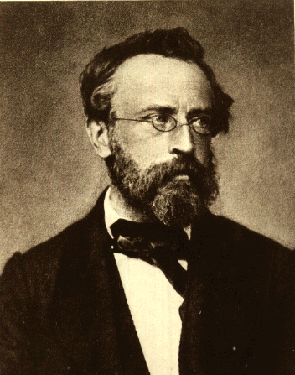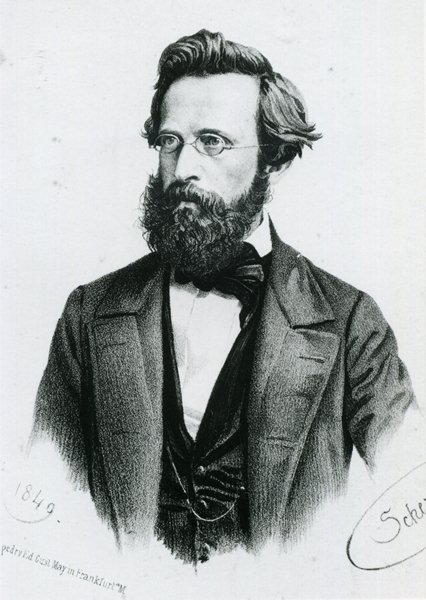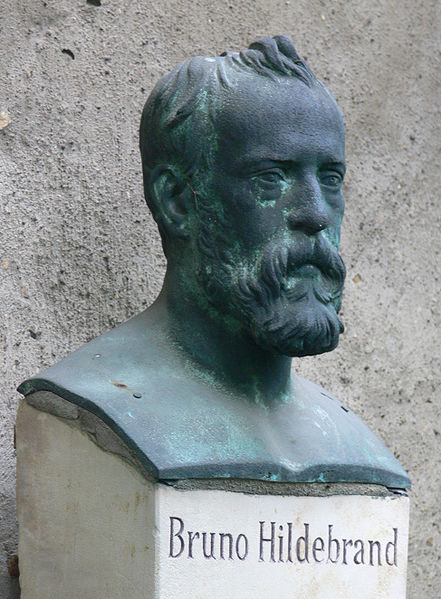<Back to Index>
- Economist Bruno Hildebrand, 1812
PAGE SPONSOR



Bruno Hildebrand (6 March 1812 - 29 January 1878) was a German economist representing the "older" historical school of economics. His economic thinking was highly critical of classical economists, especially of David Ricardo. His magnum opus was Economics of the Present and the Future (1848). The basic aim of this work was to establish laws of economic development. Hildebrand also stated that economic development was linear not cyclical. He supported socialist theory on the basis of religion, basic morals, and his beliefs of the negative effect of propriety on economic behavior.
An economics professor in Marburg, he was accused of high treason with respect to the turmoil of 1848 and condemned to death. He avoided the execution of this sentence by escaping to Switzerland, where he served as an associate professor at the University of Zurich. He was a founder and directory of the Nordostbahn, and was granted honorary Swiss citizenship. He became a professor at the University of Bern. He then returned to Germany, where he was a professor at the University of Jena.
His son was the artist and sculptor Adolf von Hildebrand. His grandson was the Catholic philosopher Dietrich von Hildebrand.